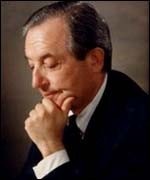About Herchel Smith
The Herchel Smith Fund was established through the generous benefaction of Dr Herchel Smith (1925–2001). It supports excellence in the biological and physical sciences, including chemistry, mathematics and related experimental fields.
The Fund focuses on early-career researchers and helps them develop their ideas at crucial stages of their academic careers.
Our mission
- Support world-class research in the biological and physical sciences
- Help early-career researchers build independent careers
- Enable ambitious, curiosity-driven research
- Encourage collaboration between Cambridge and Harvard
Through long-term endowment, the Fund provides stability and freedom for researchers to pursue innovative work.
Dr Herchel Smith 1925 - 2001

Herchel Smith was born in the UK at Plymouth and became an undergraduate at Emmanuel College, Cambridge in 1942, where he read for the Natural Sciences Tripos. This he completed with distinction. His research interests in organic chemistry were stimulated as a graduate student at Cambridge under Professor Lord Alexander Todd and he was awarded his PhD at Cambridge in 1952. His independent research started while he was a postdoctoral fellow at Oxford (1952-56) but reached its full fruition when a lecturer in organic chemistry at Manchester (1956-61). His particular forte was to develop novel methods for the modification of the chemical structures of naturally occurring steroids, and also of their total synthesis. It was in the latter area that he made his finest contribution. It was also the one in which, while still at Manchester, he invented and patented the key chemical reactions which formed the basis of his subsequent career in the pharmaceutical industry.
Dr Smith emigrated to the United States in 1961 to work for Wyeth Pharmaceuticals where his research led to the invention of the first synthetic birth control pills, injectable contraceptives, and other hormone therapy treatments. Eventually more than 800 patents were issued in his name worldwide.
Dr Smith retired from Wyeth in 1973 and started a new career as a philanthropist during which he endowed the major part of the substantial fortune that had accrued from his patent and licensing fees, and from investments. He made significant benefactions to a number of universities to promote the subjects in which he was particularly interested, namely chemistry, medicine, and patent law. In the UK the major beneficiaries were Cambridge University and Emmanuel College, Cambridge, and Queen Mary College, London. During his lifetime he endowed four Cambridge Professorships: in immunology, medicinal chemistry, organic chemistry and intellectual property law as well as endowing research fellowships at Emmanuel College in intellectual property law. In the 1970s he endowed exchange postgraduate scholarships for Emmanuel and Harvard graduates. A similar endowment at Williams College, Massachusetts, allowed graduates to attend Emanuel. Dr Smith also championed academic development in intellectual property rights, endowing a Professorship and a fellowship in the subject at Queen Mary College, London, followed by a Professorship at Cambridge. He also funded a range of initiatives at the Pennsylvania Hospital, at Williams College, and at Harvard. He received an honorary doctorate from Cambridge and the Good Samaritan award from the Pennsylvania Hospital.
Dr Smith’s interests outside research and chemistry were varied. He was a discerning art collector. In the mid-1970s he purchased the ‘Kimberley diamond’ and also initiated his precious metals portfolio, particularly in platinum. He also designed his own ocean-going yacht, Synthesis.
Dr Smith died in West Chester, Pennsylvania, on 20 December 2001. In his will he left large bequests to Univeristy of Cambridge, Harvard University, Emmanuel College, Cambridge, and Queen Mary and Westfield College, London, as well as smaller amounts to Williams College and the Pennsylvania Hospital. His gift to Cambridge was the largest ever individual bequest to a British university at the time. This has provided financial support in perpetuity for all his previous initiatives and for the endowment of five new Professorships in pure mathematics, physics, biochemistry, molecular biology and molecular genetics, as well as funding a programme of postdoctoral Fellowships at Cambridge for outstanding young scientists.
